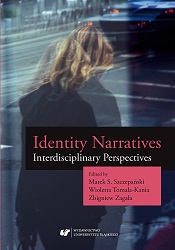
We kindly inform you that, as long as the subject affiliation of our 300.000+ articles is in progress, you might get unsufficient or no results on your third level or second level search. In this case, please broaden your search criteria.

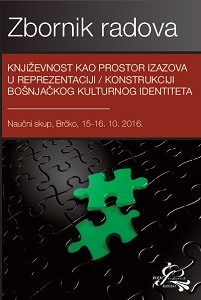
Sara Sabri’s pseudonym is Sanela Karišik-Begovic, Sandzak/BH author. Books Šapućem ti kao Sara Sabri1 and Šapućem ti kao majka majci can be classified in the genre of self-help, because we can read the intent to influence the attitudes of the recipient. Therefore, Sara Sabri’s books are participants in the construction of identity of Bosniaks outside the very text. Books of Sara Sabri consist of short texts that appear to touch upon various topics. Texts can be characterized as a short meditation on the various phenomena in the society, but the most common topics are the role of women as mothers and wives and relations with a spouse. In accordance to the anti-essentialist concept of identity as a construction and to the feminist theory, in this work we critically analyze Sara Sabris’s texts in mentioned books, especially relying on the Lawrence Grossberg’s definition of text interpretiation in which the interpretation of the texts is understood as a struggle of people “not only to make out what the text means, but also to impute meaning as something that will connect with their lives, experiences, needs and preferences”.
More...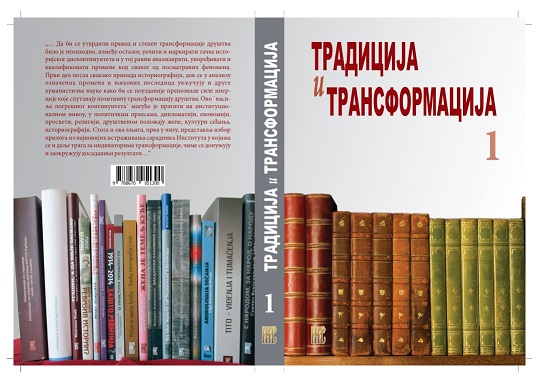
Пре разматрања једне овакве теме, читалац мора увек имати на уму да не постоји нешто јединствено што би назвали „српска историографија“ и њој насупрот „светска историографија“. Једна – априорно претежно „традиционална“ (често обележена као „националистичка“ или „митоманска“), друга – модерна, баштиник нових метода, избалансирана. По нашем разумевању и искуству постоји низ индивидуалних подухвата на обе стране, али и трендови, вододелнице међу њима које са много скрупула треба идентификовати и обележити. Дебате о традицији и модернизацији на овом простору не воде се само у крилу историјске науке, подједнако су укључени социолози, антрополози, правници, економисти и други. Ако су историчари обзирни према карактеру извора (нажалост не сви) код других дисциплина често мањкају знања из историје општег друштвеног контекста неког времена. Историчари, с друге стране, нису понекад обзирни према социолошким, економским или социопсихолошким категоријама. У више радова упозоравали смо на непознавање, али и олако баратање теоријама и моделима који су развијени на основу потпуно друге историјске емпирије од оне на коју их поједини аутори шаблонски примењују. [...]
More...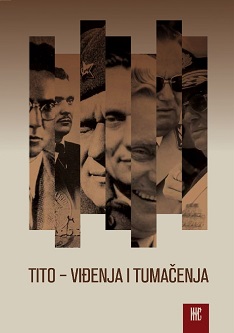
Réfutant la théorie du totalitarisme, j’ai envisagé le fonctionnement du titisme sous l’angle de la responsabilité, de l’autonomie et de l’individualité. La société yougoslave a été appréhendée dans son ensemble avec ses particularités, de façon à appréhender la réalité sociale avec ses tensions, ses revendications et les stratégies mises en place par les acteurs sociaux, tout en démontrant que Tito et le Parti communiste n’étaient pas aussi rassembleurs qu’ils ne le paraissaient Si la violence des années 1990 en a surpris plus d’un, c’est précisément (et on peut en dire autant du cas soviétique) parce que la dynamique sociale, les mutations, les transformations de la société civile et du système politique n’étaient pas prises en compte. Pour appréhender le titisme, l’article analyse l’acteur social, le culte de la personnalité, le mythe de la Fédération yougoslave, et le processus de la mémoire et de l'oubli du titisme, afin de montrer en quoi la transformation radicale du passé est incontestablement nuisible au présent et au futur de chaque société ex-Yougoslave, car elle génère une discontinuité temporelle.
More...
Slovenci su za Josipa Broza Tita saznali tokom Drgugog svetskog rata. Od 1943. nadalje počeo je sistematski da se uspostavlja kult njegove ličnosti. Po majci je Tito bio Slovenac. Slovenci nisu imali puno istorijskih ličnosti, a potreba za „ocem nacije" jedna je od nacionalnih karakteristika. Nakon njegove smrti, počela je naglo da raste kritika titoizma kao sistema, a istovremeno je počeo da se rastvara Titov kult ličnosti. Usprkos tome, većina Slovenaca je mišljenja da je Tito bio pozitivna istorijska ličnost (antifašistički otpor, promena slovenačke granice, otpor protiv Informbiroa, otvorene granice i nesvrstanost, republička državnost], a istovremeno ga (prvenstveno u desnim političkim krugovima] izričito prikazuju kao zločinca i diktatora.
More...
Yugoslav identity and the idea of brotherhood and unity of Yugoslav nations and nationalities were based on patriarchal authority of Josip Broz Tito. According to Boris Buden, the idea of Tito as a father of a family, which was widespread in the period Yugoslav socialism, was a fundamental characteristic of ideology of Titoism. For this reason, Tito’s role in the Yugoslav socialism is often interpreted in a totalitarian context which is characterized by a strong cult of personality and by a transfer of private, familial relations onto broader social relations and the public sphere.
More...
Macedonian historiography, which was part of Yugoslav historiography cherished Josip Broz Tito’s cult. After the independence of Macedonia there was a tendency in historiography for demystification of cults and for reevaluation of Tito’s political and historical role. In contemporary Macedonian historiography positive stereotypes of Tito are prevailing, lacking vulgar degradation.
More...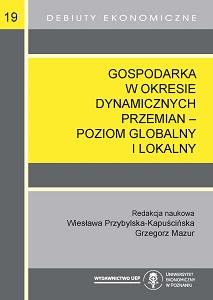
Rynek wina w Polsce w pierwszej dekadzie XXI wieku ulega dynamicznemu rozwojowi. Wzrost dochodów konsumentów, zmiany postaw społecznych oraz otwarcie się rynków zewnętrznych spowodowały, że spożycie wina w przeliczeniu na jednego mieszkańca wzrasta. W tym artykule przedstawione zostały wnioski z badań dotyczących zachowań konsumentów na rynku wina. Próbę badawczą stanowią studenci Uniwersytetu Ekonomicznego w Poznaniu. W badaniach empirycznych wykorzystano ankietę, a otrzymane rezultaty zostały poddane analizie statystycznej z wykorzystaniem testu chi-kwadrat, V-Cramera oraz rang Spearmana.
More...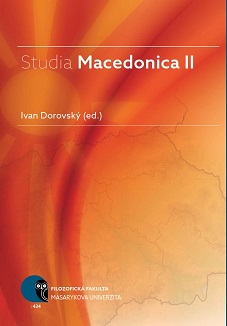
Předkládaná monografie je výsledkem dlouholeté a tradiční odborné spolupráce českých a makedonských badatelů na poli jazykovědném, literárněvědném, kulturním i ekonomickém. Přináší mnoho nových poznatků jak o makedonistice, tak o vzájemných česko-makedonských vztazích, její obsah má výrazně srovnávací charakter a poskytuje slavistům, balkanistům či makedonistům mnohé nové poznatky a podněty, studentům slavistických a balkanistických oborů pak i náměty na témata k bakalářským, magisterským i doktorským pracím.
More...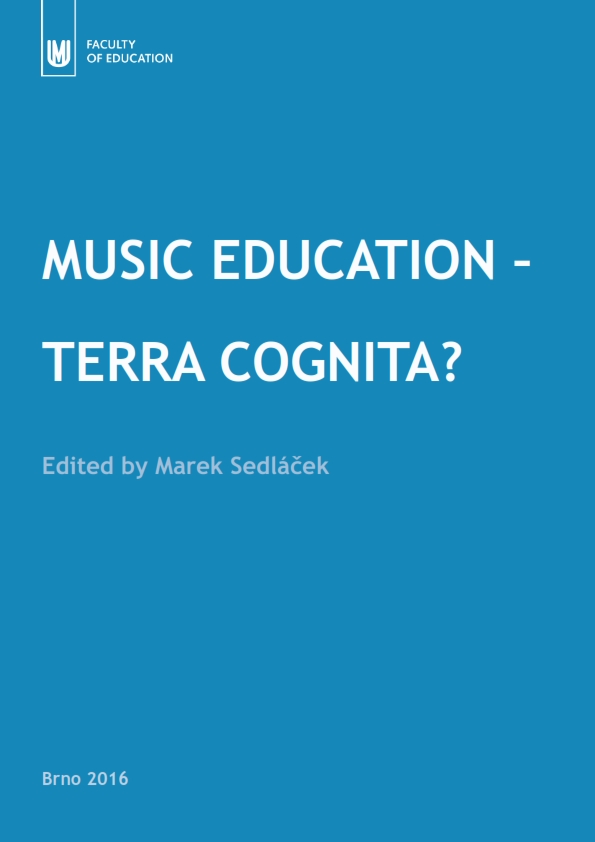
The paper discusses music culture of Czech pupils and students regarding the teaching of music education, and presents some findings published in The Annual Report of the Czech School Inspectorate. Pupils learning music at elementary art and music schools end their studies after completing the first cycle and do not continue developing their skills further although this moment tends to have the greatest impact on the future direction of an individual’s development and his/her skills. Partial results from an empirical research published by a team of the Department of Music, Faculty of Education, Brno is compared with data that is continuously collected by the Czech School Inspectorate by carrying out their inspectorial duties in primary schools and elementary art and music schools to find an answer to why elementary art pupils finish their studies prematurely and why an “active producer” of music becomes a “passive listener” only. The paper also discusses the “musicality” of the Czech nation, especially young people. An insight into the folklore and traditions is provided with an emphasis on folklore elements of some regions, respectively in South Moravia.
More...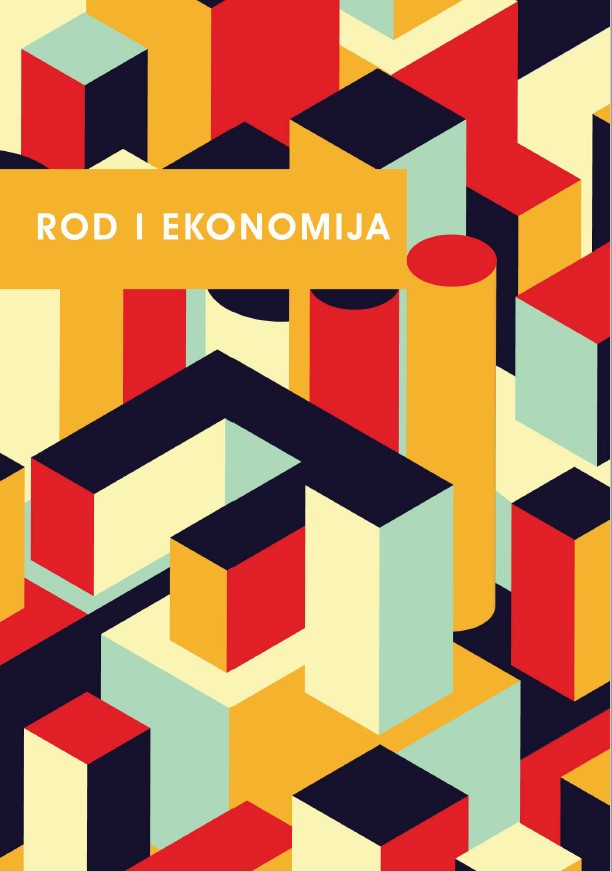
U posljednjih nekoliko decenija, neetično ponašanje u organizacijskom kontekstu počelo je zaokupljati pažnju stručne i šire javnosti širom svijeta. U tom smislu, tranzicijske zemlje nisu iznimka. Štaviše, korupcija i mito u politici i biznisu u ovim zemljama kontinuirano su u žiži javnosti. Tranzicija od socijalizma ka kapitalizmu dala je podstrek promjenama u svim aspektima društvenog života, uključujući i biznis. Društvene promjene odrazile su se na promjene u organizacijskim kulturama pa su tako egalitarne, kooperativne kulture iz doba socijalizma transformiranje u kompetitivne, individualističke organizacijske kulture u kapitalizmu. Usvajanje novih organizacijskih kultura i vrijednosti okrenutih ka individualizmu, performansama i efikasnosti uvjetovale su da menadžeri usvoje manipulativne stilove leadershipa koji su prije svega orijentirani na postizanje kratkoročnih rezultata i efikasnost, pri tome često zanemarujući važnost etičkog donošenja odluka.
More...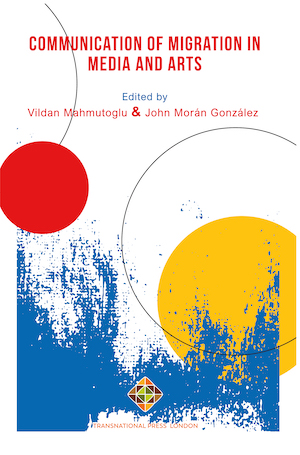
The post-Yugoslav cultural scene is especially complex and dynamic. Playwriting and theatre in this region are important forms of artistic expression, reflections of social problems, instruments of memory, and the reminders of accountability. Transfer is becoming more evident in production, promotion, (re)formation and support regarding the development of post-Yugoslav theatre. This particular field of artistic work is also characterised by thematization of migration, cultural mobility, transcultural potential, and the power to shape reality, and new levels of dialog.The basic aim of this paper is to describe the specific character of dramatic works and theatrical productions about migration initiated at the end of the twentieth century and beginning of the twenty-first in Bosnia and Herzegovina, Croatia, Kosovo, Macedonia, Montenegro, Serbia, and Slovenia. Interpretation will focus on the most representative examples. The analysis requires an interdisciplinary approach and a reference to the concept of cultural mobility (S. Greenblatt) and transculturality (W. Welsch).
More...
The article focuses on the meaning of the early texts of Pierre Bourdieu written between 1959 and 1962 and problematizing the destruction of the world of Algerian and Bearnese peasantry. The thesis states that they are a discursive response to two life experience that were important to the establishment of the great French sociologist’s intellectual path – i.e. the experience of his native Bearn and of post-colonial Algeria and Kabylia – and, as such, are crucial for the formation of Bourdieu’s intellectual dispositions. It is in the desire to understand the dramatic social forces that involve and constrain both him and the agents who occupy positions in his own temporal zone, that Bourdieu creates his distinctive approach in the social scientific field. One cannot conceptualize the specificity and originality of this approach, leading to the generation of a new and specific attitude towards the world, without making explicit the essential characteristics of the two primary life experiences of Bearn and Algeria in their quality of forming the basis of the future Bourdieusian epistemological position. Therefore, we cannot overlook their deep socioanalytic dimension and their importance to a historical sociology of discursive practices, whenever we as researchers try to answer the question of how the new and distinctive way of making social science has come to be: the way which – as a form of specific discourse – guarantees to Bourdieu the occupation of a distinctive position in the field of social scientific discursive production and simultaneously facilitates his establishment as one of the most important sociologists who appeared in France after the WWII.
More...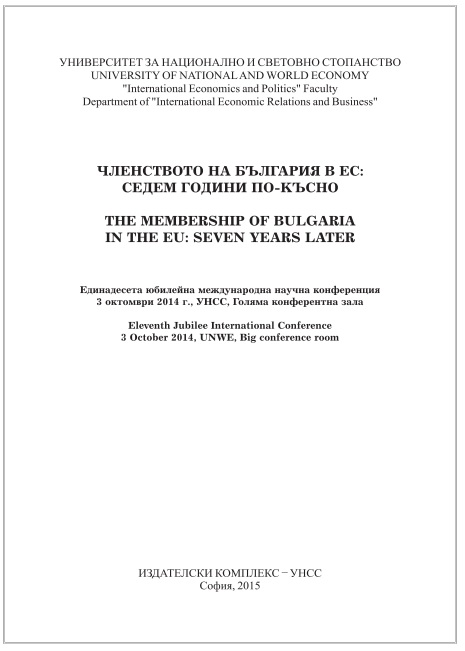
The importance of considering the cultural background has been established in the international business theory and practice for a long time. In spite of the intensive globalization processes and their impact on the domestic business environment, including the trend toward global values convergence, the arguments in favour of cultural divergence could hardly be contended. The national culture is a significant factor of the international business environment. The paper outlines current debates about the culture factor, identifying key categories and issues in cross-cultural communication and their contribution to the exciting "diversity" that exists within international business.
More...
Internet communication is an indispensable part of the contemporary international business practice. Internet provides a variety of communication tools such as email, file transfer, mailing lists, bulletin boards, chat systems, text or audio and video conferences, group calendars, workflow systems, collaborative writing systems, decision support systems, etc. The technology contains an important cultural component which is even more salient in cross-cultural communication, that is when the interlocutors are representatives of different national cultures. When selecting Internet communication tools, international business practitioners should consider the barriers in cross-cultural communication. Cross-cultural differences in Internet communication can be satisfactorily predicted on the basis of the national culture dimensions, as elaborated in cross-cultural literature. The paper sorts out contemporary theories about Internet communication and applies them in the analysis of the national culture impact on the structure and dynamics of the communication, taking place in the virtual space.
More...
Older people are often insufficiently involved in the community’s life and participate to a limited extent in cultural activities for various reasons. These reasons may be geographical isolation, unfavorable financial opportunities, disability, etc. Lack of awareness of the need to involve generation 65+ in cultural education further adversely affects the availability of cultural content intended for them. Increased access to such content contributes to their quality of life, activation, and greater inclusion in society. Social inclusion is an essential element of quality of life and dignified aging. It permeates different segments of life and includes different dimensions and layers. One of its main characteristics is that it is changing. Older age brings with it the problem of adapting to everyday life. The involvement of the elderly population in cultural content is significant, both for the mentioned population and for the local community. This chapter will present the results of a survey conducted among the elderly population of Osijek - Baranja County on their involvement in cultural content and culture perception.
More...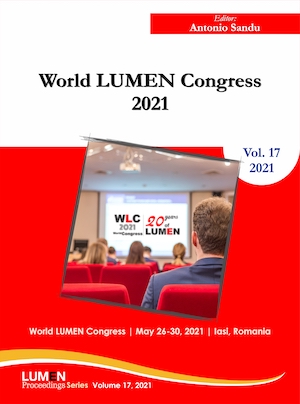
Young people are often exposed to various life situations that gradually come during their lives. The quality of life of young people in Slovakia is conditioned by several areas of social policy therefore, these issues are very important for research. The aim of the paper is to point out the analysis of selected factors (areas) that affect the life situations of young people in Slovakia. We pay attention to the areas of support and protection of the establishment of young families and preparation for parenthood, support of employment of young people and support of housing policy of young people. In this paper we work with the analysis of secondary data, which relate to selected monitored areas focused on young people in Slovakia. The data we use in the article are of a quantitative character. We will use the method of analysis, synthesis, induction and deduction to achieve the set goals. Another key method that we use in the paper is descriptive statistics (Rimarčík, 2007; Chajdiak, 2010; Marek, 2015). In Slovakia, the issue of young people often appears only as a political issue. In scientific discourses, the issue of young people is addressed in isolation, as evidenced by several contributions from the authors. The authors of this paper present the problems of selected factors (areas) influencing the perspectives and reality of young people in Slovakia in an integrated manner.
More...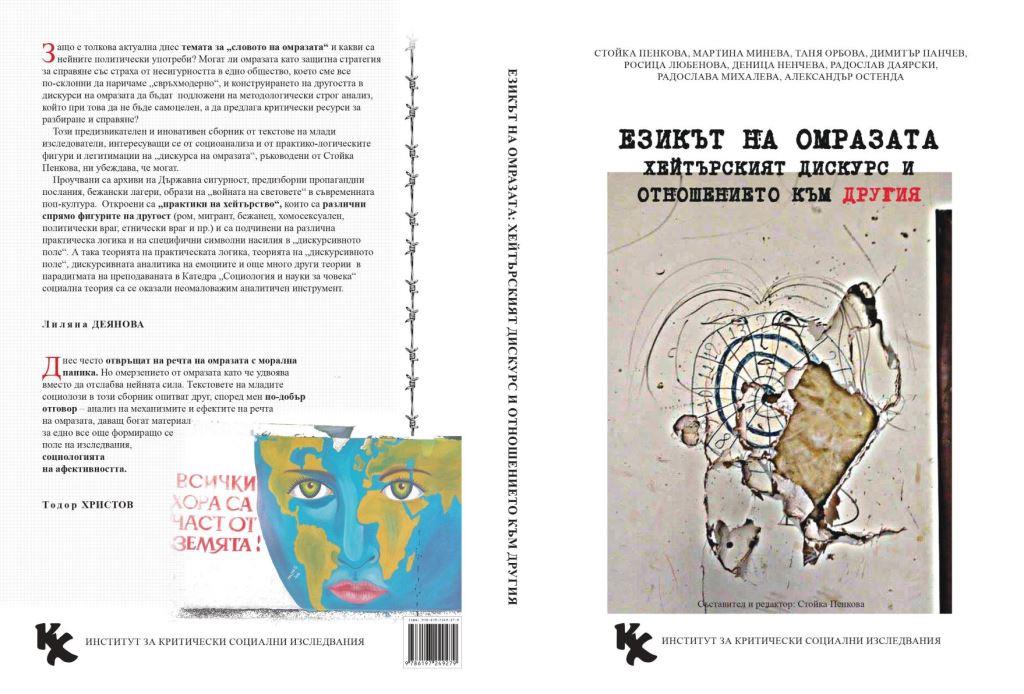
The article aims to provide a few examples from the fictional literature, film industry and computer games, all of which directly address the problem of collision between worlds that are incommeasurable. The main suggestion is that the conflict between them can be resolved only through the complete destruction of one of those worlds. This will be the starting point for the analysis of the so-called „clash of civilizations” theme, which was documented during the media monitoring carried out in October 2015. The main argument of the article is that the construction of a generalized negative image of the Other and its systematic exclusion from access to the order of discourse in its essence can become a „self-fulfilling prophecy” (borrowing the term from Robert C. Merton), i.e. this Other becomes the bearer of a crisis which, prior to that, has been ascribed as essential to him. In this way the marginalized elements of society do not have any alternative exit but to be who they are, in line with their ascribed negative identity.
More...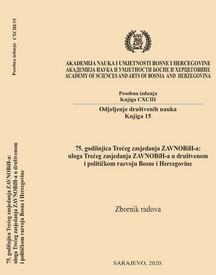
Regardless of how we perceive and understand culture, as a system of symbolic meanings, power relations, relations among various concepts, as system of values and validations, culture always represents a tool for articulation of relations among individuals and social groups. In this context, cultural politic is shaped upon the borderline between politics and culture and their mutual influence on all aspects of social life. According to Doknić, state through its ideological and political apparatuses as politically and educationally affirmative content interiorize it in living and working environment and entirely decide about each percent on financial support for culture (Doknić, 2013: 329). In this way, as it is the case with cultural politics in this specific historical period, culture becomes unavoidable factor of entire society’s transformation, planned within the cultural politics system aimed to direct, improve and coordinate limitless cultural space (ibid). Cultural politics as intentional and planned state intervention in the cultural domain, become enormously important part of entire development and positioning of one country. That is why we can claim with certainty that the role of the third assembly of ZAVNOBiH (National Anti-Fascist Council of the People’s Liberation of Bosnia and Herzegovina) is very noteworthy concerning development of cultural politics in Bosnia and Herzegovina. These are ‘pioneers’ steps’ in creating the flow of cultural life in Bosnia and Herzegovina’s society in this particular historical context. This is specifically related to establishment of cultural institutions, which exist today as well and whose universal and humanistic values and aims remain unchangeable. These institutions still nurture art and cultural literacy and reading in this very turbulent and challengeable times we are living in.
More...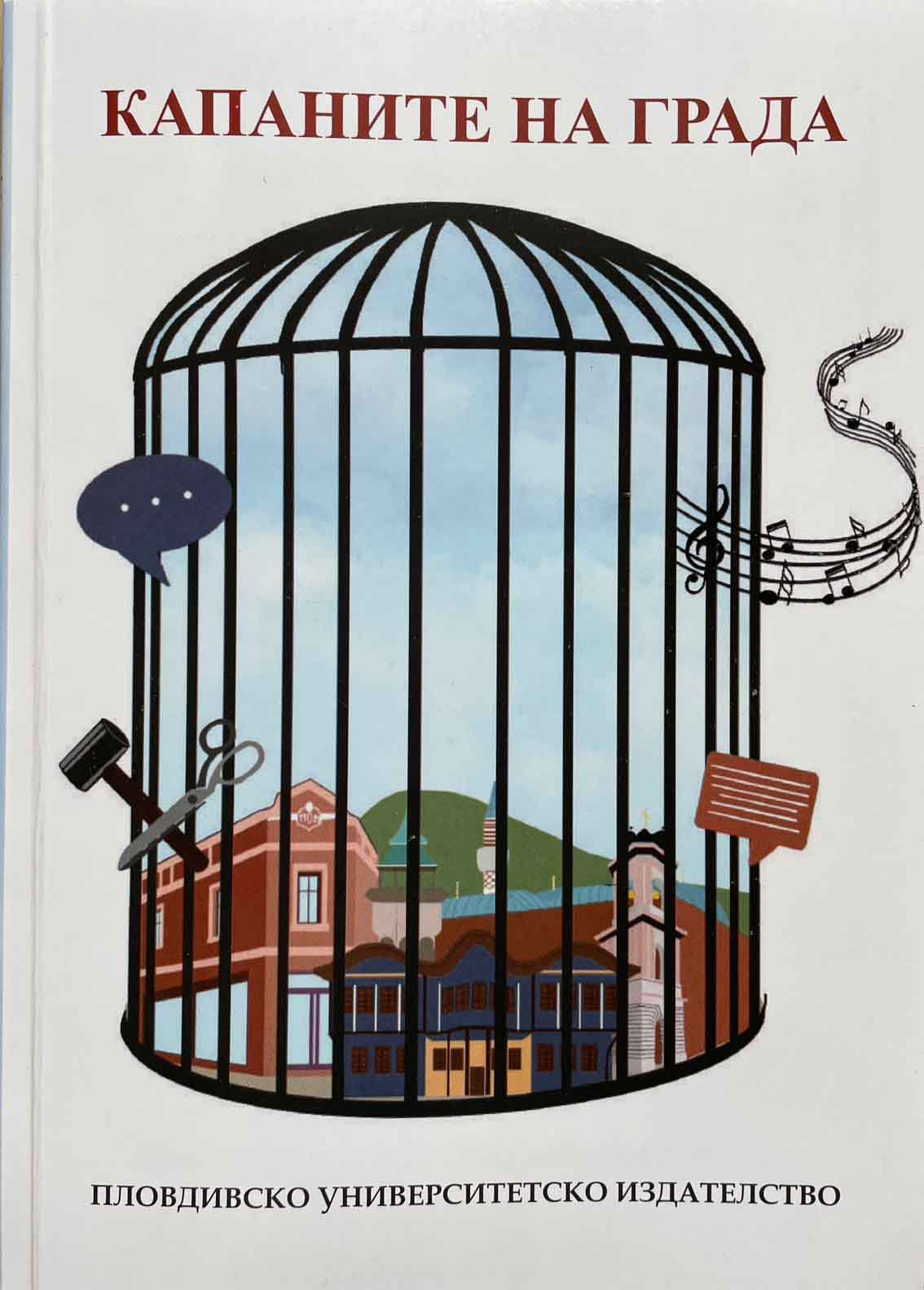
Cultural entrepreneurship is a topic that is evoking more and more interdisciplinary and polyparadigmatic efforts. The introduction and spread of the concept of “creative industries”, the awareness of the need to update both policies and management in the sphere of culture, the increasingly clearly visible need to preserve and socialize movable and immovable cultural heritage through a complex of traditional and modern methods: all these are factors that provoke more research and analysis of problems from the sphere of culture and arts.
More...